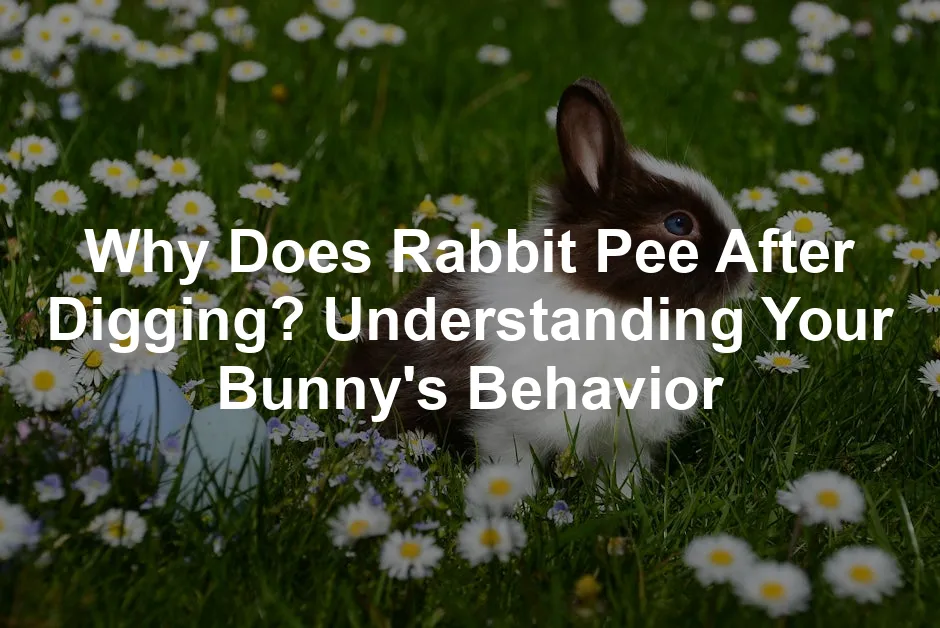
Why Does Rabbit Pee After Digging? Understanding Your Bunny’s Behavior
Introduction
In the whimsical world of rabbits, every hop, nibble, and dig tells a story. But what happens when your fluffy friend decides to dig up the couch and then leaves a little puddle behind? Is it a furry protest, a sign of happiness, or perhaps a call for attention? This behavior can certainly leave many bunny owners scratching their heads.
To truly understand why rabbits pee after digging, we need to look at their instincts and social behaviors. Digging is not just a random act of mischief; it’s an instinct rooted in their wild ancestry. Wild rabbits dig to create burrows, which serve as safe havens from predators and harsh weather. When your pet rabbit digs, they might be channeling their inner wild bunny!
Now, combine that digging with a little sprinkle of urine, and we have a curious mix of behavior. Peeing after digging often serves as a way for rabbits to mark their territory. Think of it as leaving a signature on their newly “renovated” space. This is especially true in areas that smell strongly of their humans, like the couch. It’s their way of saying, “This is mine!”
But wait, there’s more! Social communication also plays a significant role. Rabbits are social creatures. They often use their bathroom habits to communicate feelings or needs. If your bunny is feeling a bit neglected or bored, they might dig and pee to grab your attention. It’s their way of saying, “Hey, I’m here! Pay attention to me!”
Moreover, environmental changes can trigger this behavior. A new pet, relocation, or even a change in their routine can lead to increased digging and urination. Stress can make them feel uneasy, prompting them to dig and leave their scent behind as a comfort measure.
Lastly, while digging and peeing is mainly a natural behavior, it could sometimes indicate underlying health concerns. If your rabbit suddenly ramps up this behavior, it’s worth considering a vet visit to rule out any issues.
By the end of this article, you’ll be equipped with the knowledge to better understand and manage your rabbit’s digging and peeing habits. With a little patience and insight, you can ensure a happy home for both you and your beloved bunny!
So, let’s hop into the details!
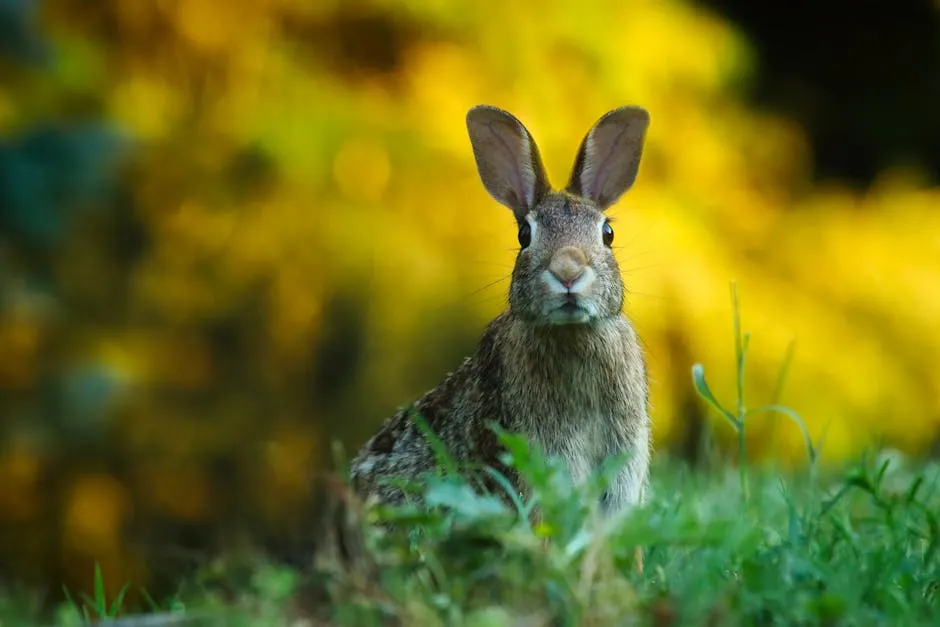
Understanding Rabbit Behavior
The Nature of Digging
Instinctual Background
Rabbits are natural diggers. In the wild, they dig burrows to create safe havens from predators. These cozy tunnels protect them from dangers lurking above. When our furry friends dig at home, they’re often channeling their wild ancestors. It’s their instinct at play, a survival skill that doesn’t fade away just because they’re pampered pets now!
Digging as Play
Digging isn’t just about survival; it’s also a source of fun! Domestic rabbits enjoy digging as a form of entertainment and exercise. Think of it as their version of a workout. A good dig session can lead to some serious binkying later on. Plus, it keeps them mentally stimulated. Boredom can lead to destructive behavior, so a little digging is a healthy outlet.
To keep your bunny entertained, consider introducing a Rabbit Digging Box. It’s a fantastic way to satisfy their digging instincts while keeping your furniture intact!
Why Rabbits Pee After Digging
Territorial Marking
Now, here’s where things get interesting. When rabbits dig, they often pee immediately afterward. Why? It’s all about marking territory! By leaving a little puddle behind, they announce, “This is my space!” It’s their way of claiming the ground they’ve just worked so hard to dig up. You might notice this behavior especially in areas that smell like their humans. It’s like leaving a signature on a freshly decorated space!
Creating Comfort
But there’s more to it. Peeing after digging also provides comfort. When rabbits dig and urinate in the same spot, they’re creating a familiar scent around their burrow. This scent acts as a security blanket, making them feel safe in their environment. It’s like putting on a favorite pair of fuzzy socks after a long day. Comfort and familiarity are key to a happy bunny!
To ensure your bunny is comfortable, consider providing Soft Bedding for Pets. It creates a cozy environment where they can relax and feel secure.
Communication and Social Behavior
Attention-Seeking
Let’s face it: rabbits are social creatures. Sometimes, they dig and pee to get our attention. If your bunny feels a bit neglected or bored, they may dig and leave a little puddle to say, “Hey, I’m here! Notice me!” It’s their way of engaging with their humans. If you’ve ever found yourself cleaning up after a dig session, you know exactly what they’re doing.
Social Dynamics
Rabbits communicate with each other and their owners through behaviors like digging and peeing. For instance, when they mark their territory, they’re also signaling to other rabbits (or you) about their presence. It’s like sending a little text message saying, “I exist, and I’m fabulous!” Understanding these behaviors helps strengthen the bond between you and your furry friend. They’re not just being naughty; they’re expressing themselves!
For a little extra engagement, consider a Rabbit Interactive Toy to keep your bunny entertained and mentally stimulated!
By recognizing these natural instincts and social cues, you can better appreciate your rabbit’s behavior and respond appropriately. Remember, each dig and sprinkle is part of your bunny’s unique personality!
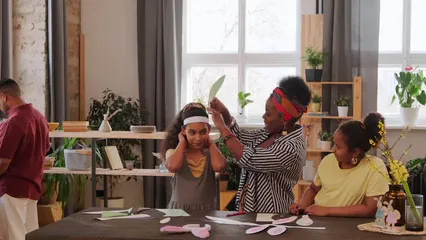
Environmental and Emotional Triggers
Understanding why your rabbit pees after digging requires a look at their environment and emotional state. Stress, anxiety, and boredom can all trigger this behavior, turning your living room into a dig site with little puddles. Let’s tackle these triggers head-on!
Stress and Anxiety
Environmental Changes
Rabbits are creatures of habit. They thrive on routine, and any disruption can cause stress. Moving to a new home can be a major upheaval for your fluffy friend. New smells, sounds, and sights can be overwhelming. If you recently adopted a rabbit or introduced a new pet, brace yourself for digging and peeing. It’s their way of coping with the new surroundings. Picture this: your rabbit, a little ball of fluff, suddenly feeling like they’re on an expedition in a foreign land. This stress can lead them to dig, and they might pee afterward as a way to mark their territory, reassuring themselves that they still belong.
Boredom and Lack of Stimulation
Let’s face it: rabbits are like toddlers. If they’re not entertained, chaos ensues! A bored bunny might dig through your couch cushions and leave a puddle as a cry for help. Without enough physical and mental stimulation, your rabbit might resort to digging as a way to alleviate their boredom. Think of it as their version of binge-watching reality TV. They need activities that engage their brains and bodies. Provide toys, tunnels, and playtime to keep them busy. A digging box filled with safe materials can be a perfect distraction. With the right outlets, your rabbit can channel their energy into fun rather than destructive behavior.
One great option to consider is Rabbit Tunnels. They provide endless fun and encourage natural behaviors, giving your bunny a safe space to explore!
Health Issues to Consider
Common Medical Concerns
While digging and peeing can be linked to behavioral issues, don’t overlook potential health problems. Medical issues like urinary tract infections (UTIs) can cause changes in urination habits. If your rabbit suddenly starts peeing more frequently or seems uncomfortable during bathroom breaks, it’s time to schedule a vet visit. Remember, rabbits can’t tell us when something’s wrong, so keep an eye out for changes in their litter box habits. Just like we wouldn’t ignore a friend who suddenly starts acting differently, we shouldn’t overlook our furry pals’ signals.
Behavioral Changes Due to Pain
Pain can also influence your rabbit’s behavior. If they’re experiencing discomfort, they might dig and pee more as a way to cope. Changes in litter box habits can be a red flag; if your rabbit is avoiding the litter box, it could indicate a problem. Discomfort can lead them to seek out familiar spots where they feel safe. Always be vigilant about your rabbit’s health; regular check-ups can help catch issues before they become serious. A well-cared-for bunny is a happy bunny!
Consider investing in a Pet First Aid Kit to ensure you’re prepared for any unexpected health issues with your bunny.
In summary, understanding your rabbit’s environmental and emotional triggers is crucial. Stress, boredom, and potential health issues can all play a role in their digging and peeing behavior. By addressing these factors, you can help your fluffy friend feel more secure, entertained, and healthy.
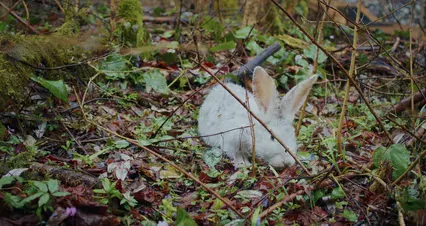
Managing Digging and Peeing Behavior
Rabbits are adorable, fluffy little creatures, but they come with their fair share of quirks! If your bun has taken to digging like a tiny excavator and follows up with a wee puddle, don’t fret. There are effective ways to manage this behavior and help your furry friend feel secure, happy, and house-trained. Here’s how to tackle those digging and peeing escapades!
Providing Alternatives
Digging Boxes
One of the best ways to redirect your rabbit’s digging instinct is to create a designated digging box. Fill a large cardboard box or storage container with safe materials like shredded paper, hay, or even old towels. This gives your bunny a safe space to dig without wreaking havoc on your furniture. Plus, make it a treasure hunt by hiding treats inside! Your rabbit will be so busy digging for goodies, they’ll hardly have time to dig into your couch cushions.
You can also consider adding some Rabbit Digging Mats to enhance their digging experience and keep them entertained!
Interactive Toys
In addition to a digging box, provide your rabbit with interactive toys that mimic their natural digging behavior. Look for toys designed for digging, like crumpled paper or rabbit-safe fabric tunnels. These toys engage your bunny’s curiosity while keeping their paws away from your precious carpets and sofa. It’s a win-win situation—fun for them and peace of mind for you!
Encouraging Litter Training
Litter Box Setup
Setting up an effective litter box is crucial for minimizing accidents. Place litter boxes in areas where your rabbit frequently digs or pees. Rabbits prefer to use specific corners, so observe their habits! Use Paper-Based Litter for Rabbits, as many rabbits enjoy munching on it. Keep the litter box clean by scooping daily and changing the litter regularly; a dirty box can lead to unwanted accidents.
Positive Reinforcement
Never underestimate the power of praise! When you catch your rabbit using the litter box, reward them with a treat or gentle petting. This positive reinforcement helps your bunny associate the litter box with good things. Be patient and consistent—litter training can take time, but with a little encouragement, your rabbit will get the hang of it. Remember, every time they hop into the box, it’s a little victory!
Reducing Stress
Creating a Safe Environment
Rabbits thrive in calm environments. To reduce stress, ensure your bunny has a cozy, quiet space to relax. Use Pet Blankets and provide hiding spots where they can retreat when overwhelmed. Minimize loud noises and sudden movements around them. A serene space helps prevent anxiety-driven digging and peeing, making your bunny feel secure and at home.
Regular Vet Check-ups
Don’t forget about health! Regular vet visits are essential for monitoring your rabbit’s condition. Sometimes, increased digging and peeing can signal underlying health problems. A quick check-up can help rule out issues like urinary tract infections or pain, ensuring your furry friend is healthy and happy. Keeping an eye on their well-being is key to understanding their behaviors.
For safety and health, consider a Rabbit Health Care Book to guide you in keeping your bunny in tip-top shape!
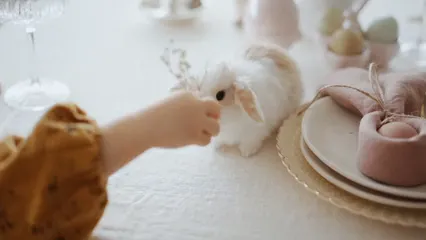
By implementing these strategies, you can effectively manage your rabbit’s digging and peeing habits. Not only will they have appropriate outlets for their instincts, but you’ll enjoy a cleaner, more harmonious home. Remember, a little patience and creativity go a long way in nurturing a happy bunny!
Conclusion
Understanding why your rabbit pees after digging is essential for fostering a happy and healthy environment for your furry friend. This behavior isn’t just random chaos; it’s part of their instinctual nature. Rabbits dig primarily to create a safe space, reminiscent of their wild ancestors. When they pee afterward, they’re marking their territory, ensuring that their scent is prominent in their newly occupied area.
Recognizing these behaviors as natural instincts can help you manage them effectively. It’s important to remember that rabbits express themselves through their actions. For instance, if your bunny digs and pees, they might be feeling stressed, bored, or even seeking your attention. Providing them with a stimulating environment can make a big difference. Interactive toys and designated digging boxes can satisfy their digging cravings without damaging your furniture.
Also, be observant of any sudden changes in behavior. If your rabbit suddenly digs more or starts urinating outside their litter box, it might be a sign of stress or health issues. Always prioritize their comfort and security; a stable environment goes a long way in keeping your bunny happy.
Patience is key. With proper care and understanding, you can help your rabbit feel safe, secure, and loved. This journey of understanding your bunny’s quirks not only strengthens your bond but also creates a harmonious home. So, embrace those digging episodes and the occasional puddle. After all, every hop and nibble is part of the delightful tapestry of rabbit life!
FAQs
Understanding emotional triggers can play a significant role in managing your rabbit’s behavior. For more insights, check out this article on why is understanding emotional triggers important for stress relief.
Is it normal for rabbits to pee while digging?
Yes, this behavior is quite common and often related to territorial marking. When rabbits dig, they often feel the need to leave their scent behind, especially in areas that smell strongly of their humans.
How can I train my rabbit to stop peeing outside the litter box?
Provide multiple litter boxes throughout your home. Use positive reinforcement when they use the box correctly, and maintain a clean environment. Regularly scooping the boxes encourages good habits.
Should I be concerned if my rabbit suddenly starts digging more?
Increased digging can be a sign of stress or boredom. Evaluate their environment and ensure they have enough stimulation and space to dig safely.
What should I do if my rabbit stops using the litter box?
Monitor for any health issues, as sudden changes can indicate discomfort. Ensure the litter box is clean and accessible. If the problem persists, consult a vet for further advice.
Are there specific breeds that dig more than others?
Some breeds, particularly those with stronger instincts like the Holland Lop, may dig more. However, all rabbits have a natural tendency to dig, so it’s important to provide them with appropriate outlets.
Please let us know what you think about our content by leaving a comment down below!
Thank you for reading till here 🙂
All images from Pexels




